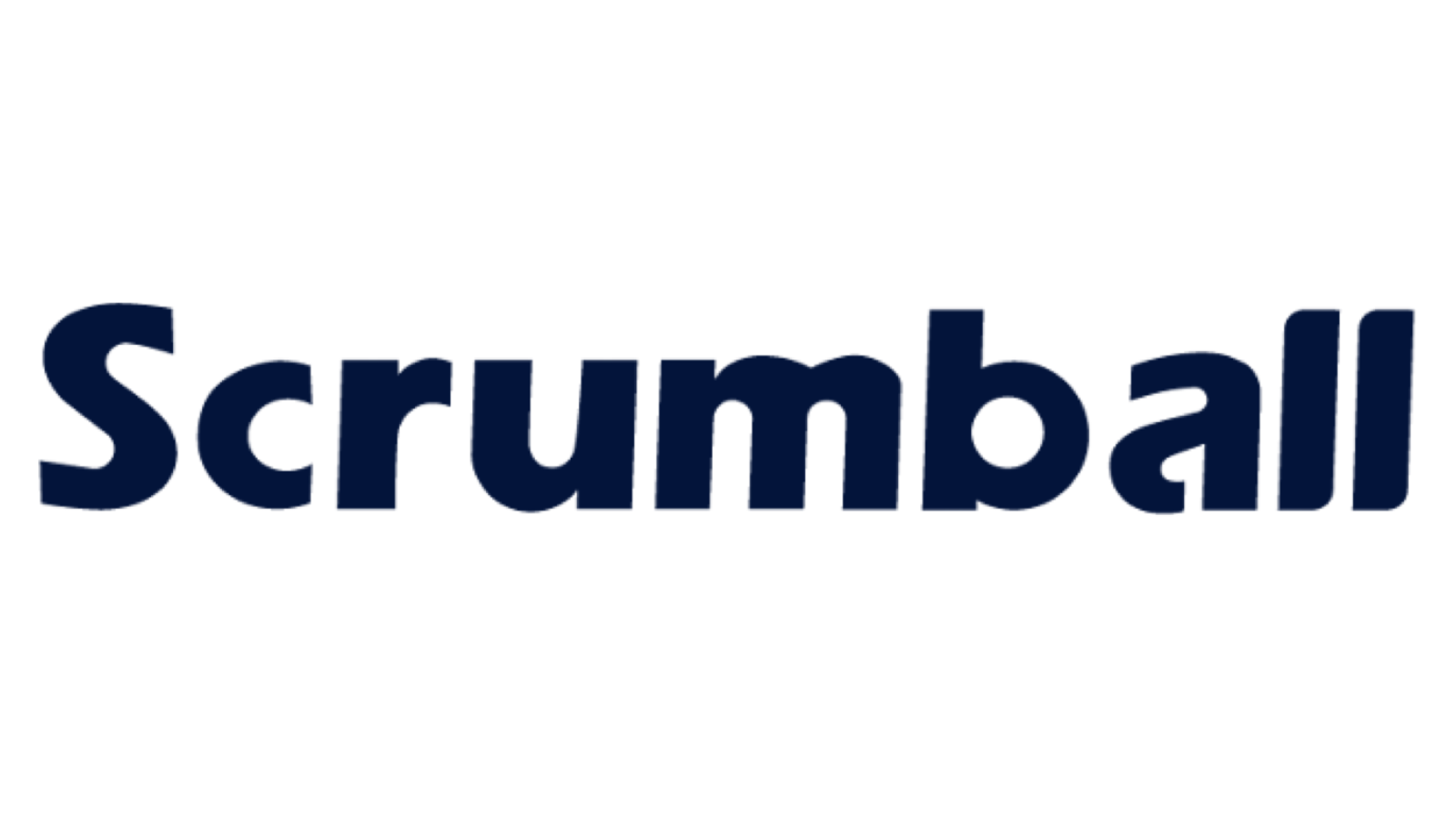Understanding Campaign Management and Its Importance

Campaign management plays a vital role in modern marketing. It involves planning, executing, monitoring, and optimizing each campaign to achieve specific goals. By managing campaigns effectively, you can improve engagement, increase conversions, and drive better results. Optimized campaigns not only enhance user interaction but also boost return on investment (ROI). Businesses that focus on proactive planning often report higher success rates. With the right strategies, you can align your campaigns with your objectives and stay competitive in an ever-changing market.
What is Campaign Management?
Definition of Campaign Management
Campaign management refers to the structured process of planning, executing, monitoring, and optimizing marketing campaigns to achieve specific objectives. It ensures that every campaign is well-organized and aligned with your business goals. By managing campaigns effectively, you can create a seamless experience for your audience while driving measurable results. This process involves breaking down complex marketing efforts into manageable tasks, which helps you stay focused and efficient.
Mainstay, an expert in campaign management, emphasizes that "campaign management plays a vital role in coordinating and optimizing marketing efforts to achieve desired outcomes and improve return on investment (ROI)."
Through this approach, you can track performance, make data-driven decisions, and continuously refine your strategies to maximize impact.
Purpose and Scope of Campaign Management
Aligning Campaigns with Business Objectives
Every successful campaign begins with a clear connection to your business objectives. Campaign management helps you align your marketing efforts with these goals, ensuring that each campaign contributes to your overall strategy. For instance, if your objective is to increase brand awareness, your campaigns will focus on reaching a broader audience through targeted messaging and creative content.
Managing Campaigns Across Multiple Channels
In today’s digital landscape, your audience interacts with brands across various platforms. Campaign management enables you to coordinate your efforts across multiple channels, such as social media, email, and search engines. This ensures that your message reaches the right audience at the right time. By managing campaigns across different platforms, you can maintain consistency and avoid duplication of efforts.
Ensuring Consistency and Effectiveness in Messaging
Consistency in messaging builds trust and strengthens your brand identity. Campaign management ensures that your campaigns deliver a unified message, regardless of the channel or platform. This approach not only enhances the effectiveness of your campaigns but also creates a cohesive experience for your audience. When your messaging resonates with your target audience, it increases engagement and drives better results.
The Campaign Management Process

A structured campaign management process ensures your marketing efforts are organized, efficient, and goal-oriented. By following a clear framework, you can maximize the impact of each campaign while minimizing errors. Let’s explore the key stages of this process.
Planning
Effective planning lays the foundation for a successful campaign. It helps you define your goals, understand your audience, and allocate resources wisely.
Setting Clear Goals and Objectives
Start by identifying what you want to achieve. Clear goals give your campaign direction and purpose. Whether you aim to boost brand awareness, generate leads, or increase sales, defining measurable objectives ensures you can track progress. For example, instead of saying, "Increase website traffic," set a specific target like, "Achieve a 20% increase in website visits within three months."
Identifying Target Audiences
Understanding your audience is crucial. Identify who you want to reach and what they value. Use demographic data, preferences, and behaviors to create detailed audience profiles. This step ensures your campaign resonates with the right people. For instance, if your audience consists of young professionals, focus on platforms like LinkedIn or Instagram where they are most active.
Budget Allocation and Resource Planning
Allocate your budget based on your campaign goals and the channels you plan to use. Ensure you have the resources needed to execute your strategy effectively. This includes tools, team members, and time. Structured planning prevents overspending and ensures every dollar contributes to your objectives.
"Structured campaign management brings order, consistency, and accountability to campaign tracking, leading to improved performance and success."
Execution
Execution transforms your plans into action. This stage focuses on launching your campaign and ensuring all elements work together seamlessly.
Launching Campaigns Across Chosen Platforms
Deploy your campaign on the platforms that align with your audience’s preferences. Whether it’s social media, email, or search engines, tailor your content to fit each channel. For example, use engaging visuals for Instagram and concise, actionable text for email campaigns.
Coordinating Teams and Resources
Ensure your team members understand their roles and responsibilities. Coordination is key to maintaining consistency and meeting deadlines. Use project management tools to assign tasks, track progress, and communicate effectively. A well-coordinated team ensures your campaign runs smoothly from start to finish.
Monitoring
Monitoring helps you evaluate your campaign’s performance in real-time. This step allows you to identify what works and what needs improvement.
Tracking Performance Metrics in Real-Time
Use analytics tools to track key performance indicators (KPIs) such as click-through rates, conversions, and engagement levels. Real-time data provides valuable insights into how your campaign is performing. For instance, if a social media ad isn’t generating clicks, you can adjust it immediately.
Identifying Areas for Improvement
Analyze the data to pinpoint weaknesses in your campaign. Look for patterns or trends that indicate underperformance. For example, if your email open rates are low, consider revising your subject lines or timing. Continuous monitoring ensures you can make informed adjustments to improve results.
Optimization
Adjusting Strategies Based on Data Insights
Optimization begins with analyzing the data collected during your campaign. By examining performance metrics, you can identify what works and what needs improvement. Use this information to refine your strategies. For example, if a specific ad generates high engagement, consider replicating its elements in future campaigns. Data-driven insights allow you to make informed decisions that enhance your marketing efforts.
Modern tools, including AI-powered platforms, simplify this process. These tools help you segment your audience more effectively, allocate budgets wisely, and predict future trends. Predictive analysis enables you to anticipate audience behavior and adjust your campaigns accordingly. This approach ensures your strategies remain relevant and impactful.
"Campaign optimization is essential for improving ROI, driving the right traffic, and increasing conversions," as highlighted by marketing experts. By leveraging data insights, you can stay ahead of competitors and achieve better results.
Enhancing Campaign Performance Over Time
Optimization is not a one-time task. It requires continuous effort to improve your campaign performance. Regularly review your results and implement changes based on your findings. For instance, test different creatives, headlines, or call-to-action phrases to determine what resonates most with your audience. A/B testing is a valuable method for identifying the most effective elements of your campaign.
Dynamic optimization, supported by advanced technologies, allows you to adapt your campaigns in real-time. This means you can tweak your ads, adjust your targeting, or reallocate your budget while the campaign is live. Such flexibility ensures you maximize your outcomes without wasting resources.
Long-term optimization focuses on building a sustainable strategy. By learning from past campaigns, you can develop a framework that consistently delivers results. Over time, this approach enhances your overall campaign management process, making it more efficient and effective.
Tools and Technologies for Marketing Campaign Management
The right tools and technologies can transform your marketing campaign management process. They streamline workflows, enhance efficiency, and provide actionable insights. Let’s explore three essential categories of tools that can elevate your campaigns.
Marketing Automation Platforms
Marketing automation platforms simplify repetitive tasks and help you focus on strategy. These tools allow you to schedule posts, send emails, and manage ads across multiple channels. By automating these processes, you save time and ensure consistency in your campaigns.
Key features of marketing automation platforms include:
- Email Campaign Management: Automate email sequences to nurture leads and engage customers.
- Social Media Scheduling: Plan and publish posts on platforms like Facebook, Instagram, and LinkedIn.
- Lead Scoring: Identify high-potential leads based on their interactions with your campaigns.
For example, if you’re running a multi-channel campaign, automation platforms ensure your messaging stays consistent across all touchpoints. This consistency builds trust and strengthens your brand identity.
"Automation tools empower marketers to focus on creativity and strategy while ensuring operational efficiency," as highlighted by industry experts.
Analytics and Reporting Tools
Analytics and reporting tools provide the data you need to measure campaign performance. These tools track key metrics like click-through rates, conversions, and engagement levels. By analyzing this data, you can identify what works and refine your strategies.
Benefits of using analytics tools include:
- Audience Insights: Understand your audience’s behavior, preferences, and purchase patterns.
- Performance Tracking: Monitor real-time metrics to evaluate the success of your campaigns.
- Data-Driven Decisions: Use insights to optimize your campaigns and achieve better results.
For instance, campaign analytics can reveal which ads resonate most with your audience. You can then allocate more resources to high-performing ads, ensuring your marketing efforts align with your objectives.
Customer Relationship Management (CRM) Systems
Customer Relationship Management (CRM) systems are indispensable for marketing campaign management. These tools centralize customer information, making it easier to track leads and maintain relationships throughout the campaign lifecycle.
Key advantages of CRM systems include:
- Lead Tracking: Monitor leads generated from your campaigns and nurture them effectively.
- Sales Alignment: Align sales and marketing teams to ensure a seamless customer journey.
- Pipeline Management: Track deals and monitor sales performance to achieve your goals.
A CRM system not only supports your marketing team but also helps your sales team close deals efficiently. By integrating CRM tools into your campaigns, you create a unified approach that enhances customer satisfaction and drives results.
"CRM tools act as the nerve center of modern marketing, ensuring smooth collaboration between sales and marketing teams," according to marketing professionals.
Why is Campaign Management Important?
Campaign management holds immense value in achieving your business objectives. It ensures that your marketing efforts are purposeful, efficient, and impactful. By understanding its importance, you can unlock the full potential of your campaigns and drive meaningful results.
Achieving Business Goals
Driving Brand Awareness and Engagement
A well-executed campaign helps you capture attention and build recognition for your brand. By delivering consistent and targeted messages, you can connect with your audience and foster engagement. For example, a social media campaign with creative visuals and interactive content can spark conversations and increase your brand’s visibility. This approach not only strengthens your presence but also builds trust among your audience.
Generating Leads and Conversions
Campaign management enables you to design strategies that attract potential customers and guide them toward taking action. Whether it’s signing up for a newsletter or making a purchase, every step of the customer journey benefits from a structured campaign. Research shows that content marketing generates three times as many leads as traditional methods while costing 62% less. By focusing on lead generation and conversion, you can achieve a higher return on investment (ROI) and grow your business effectively.
Benefits of Effective Campaign Management
Improved Efficiency and Resource Allocation
Effective campaign management streamlines your processes and ensures optimal use of resources. By planning and organizing your campaigns, you can allocate budgets wisely and avoid unnecessary expenses. For instance, automation tools can handle repetitive tasks, allowing your team to focus on strategy and creativity. This efficiency not only saves time but also enhances the overall performance of your campaigns.
Better Targeting and Personalization
Understanding your audience is key to delivering personalized experiences. Campaign management helps you analyze data and segment your audience based on their preferences and behaviors. With this insight, you can create tailored messages that resonate with specific groups. Personalized campaigns improve engagement and make your audience feel valued, increasing the likelihood of conversions.
Higher Return on Investment (ROI)
A well-managed campaign maximizes your ROI by focusing on strategies that deliver measurable results. By tracking performance metrics and optimizing your efforts, you can ensure that every dollar spent contributes to your goals. Campaign optimization drives the right traffic, boosts engagement, and increases conversions. These benefits give you a competitive edge and help you achieve sustainable growth.
Staying Competitive in the Market
Adapting to Changing Consumer Behaviors
Consumer preferences and behaviors evolve constantly. Campaign management allows you to stay agile and adapt to these changes. By monitoring trends and analyzing data, you can adjust your strategies to meet your audience’s needs. For example, if your target audience shifts to a new social media platform, you can quickly realign your campaigns to maintain relevance.
Leveraging Data-Driven Decision-Making
Data plays a crucial role in modern marketing. Campaign management equips you with the tools to collect, analyze, and act on data insights. By leveraging this information, you can make informed decisions that enhance your campaigns. For instance, analytics tools can reveal which channels perform best, enabling you to focus your efforts where they matter most. This data-driven approach ensures that your campaigns remain effective and competitive.
"Campaign optimization is essential for improving ROI, driving the right traffic, and increasing conversions," as highlighted by marketing experts. By embracing effective campaign management practices, you can position your business for long-term success.
Examples of Effective Marketing Campaign Management

Real-World Examples
A Successful Social Media Campaign
Social media has become a powerful tool for connecting with audiences. One standout example is the Dove Campaign for Real Beauty. This marketing campaign redefined beauty standards by promoting body positivity and self-confidence. Dove used relatable imagery and authentic messaging to challenge societal norms. The campaign resonated deeply with its audience, sparking conversations across platforms like Facebook and Instagram. By focusing on inclusivity, Dove not only increased brand loyalty but also created a lasting cultural impact.
Another remarkable example is Coca-Cola's "Share a Coke" campaign. Coca-Cola replaced its iconic logo with popular names on bottles, encouraging people to share a Coke with friends and family. This personalized approach inspired users to post photos of their bottles on social media, creating a viral sensation. The campaign boosted Coca-Cola's online presence and strengthened its emotional connection with consumers. It demonstrated how personalization and social sharing can amplify a brand's reach.
A Multi-Channel Product Launch
Nike’s “Just Do It” campaign exemplifies the power of multi-channel marketing. Nike featured stories of both professional and amateur athletes, showcasing their achievements and inspiring others to pursue their goals. The campaign utilized television ads, social media platforms, and in-store promotions to deliver a consistent message. By connecting motivational stories to its core values, Nike built a strong emotional bond with its audience. This approach not only increased sales but also reinforced Nike’s position as a leader in the sportswear industry.
Another example of a successful multi-channel strategy is Apple’s product launches. Apple integrates live events, digital ads, and social media campaigns to create excitement around its products. Each channel delivers a unified message, ensuring maximum visibility and engagement. This strategy highlights the importance of consistency and coordination in multi-channel marketing campaigns.
Lessons Learned from Effective Campaigns
Importance of Clear Goals and Consistent Messaging
Successful campaigns always start with clear objectives. For instance, Dove’s Campaign for Real Beauty aimed to redefine beauty standards and connect with consumers on a personal level. This clarity guided every aspect of the campaign, from visuals to messaging. Similarly, Coca-Cola’s "Share a Coke" campaign focused on fostering connections through personalization. These examples show that well-defined goals provide direction and purpose, ensuring your marketing campaign stays on track.
Consistency in messaging also plays a crucial role. Nike’s “Just Do It” campaign maintained a unified tone across all channels, reinforcing its brand identity. When your message remains consistent, it builds trust and strengthens your relationship with your audience. Clear goals and cohesive messaging work together to create impactful campaigns that resonate with consumers.
Role of Data in Driving Campaign Success
Data serves as the backbone of any successful marketing campaign. It helps you understand your audience, measure performance, and refine your strategies. For example, Coca-Cola used data to identify popular names for its "Share a Coke" campaign, ensuring the bottles appealed to a wide audience. This data-driven approach enhanced the campaign’s effectiveness and boosted engagement.
Nike also leveraged data to target specific demographics with tailored content. By analyzing consumer behavior, Nike identified the platforms and messages that resonated most with its audience. This insight allowed the brand to optimize its campaigns for maximum impact. These examples highlight the importance of using data to make informed decisions and achieve better results.
"Data-driven marketing empowers brands to connect with their audience on a deeper level, ensuring campaigns deliver measurable outcomes," as emphasized by industry experts.
Campaign management ensures your marketing efforts are structured and aligned with your business goals. By focusing on planning, execution, monitoring, and optimization, you can create campaigns that deliver measurable results. This process helps you stay organized, allocate resources effectively, and adapt to changing market demands. With the right tools and practices, you can streamline workflows and improve performance. Structured campaign management transforms scattered efforts into cohesive strategies, enabling you to maximize ROI and achieve long-term success. Embracing these practices empowers you to navigate challenges and maintain a competitive edge.
FAQ
What is campaign management?
Campaign management is the process of planning, executing, monitoring, and optimizing marketing campaigns to achieve specific goals. It ensures that your campaigns are organized, targeted, and aligned with your business objectives. This structured approach helps you track performance, make data-driven decisions, and improve results over time.
Why is campaign management important for businesses?
Campaign management plays a crucial role in helping businesses achieve their marketing goals. It ensures that your efforts are efficient, consistent, and impactful. By managing campaigns effectively, you can improve brand awareness, generate leads, and increase conversions. It also allows you to allocate resources wisely and maximize your return on investment (ROI).
How do I start managing a marketing campaign?
Start by defining clear goals and objectives for your campaign. Identify your target audience and understand their preferences. Allocate your budget and resources based on your goals. Use tools like marketing automation platforms and analytics software to streamline your efforts. Finally, monitor your campaign’s performance and optimize it based on data insights.
What tools can help with campaign management?
Several tools can simplify campaign management. Marketing automation platforms help you schedule posts, send emails, and manage ads. Analytics tools provide insights into performance metrics like engagement and conversions. Customer Relationship Management (CRM) systems centralize customer data and improve lead tracking. These tools enhance efficiency and ensure your campaigns deliver measurable results.
How can I measure the success of my campaigns?
Measure success by tracking key performance indicators (KPIs) such as click-through rates, conversion rates, and engagement levels. Use analytics tools to gather real-time data and evaluate your campaign’s performance. Compare the results against your initial goals to determine whether your campaign achieved its objectives.
What are some common challenges in campaign management?
Common challenges include unclear goals, poor resource allocation, and inconsistent messaging. Managing campaigns across multiple channels can also be complex. To overcome these challenges, focus on planning, use the right tools, and ensure your team communicates effectively. Regular monitoring and optimization can help address issues as they arise.
How can I improve my campaign’s performance?
You can improve performance by analyzing data and making adjustments based on insights. Test different strategies, such as changing your messaging or targeting a new audience segment. Use A/B testing to identify what works best. Continuously refine your approach to ensure your campaigns remain effective and relevant.
Can small businesses benefit from campaign management?
Yes, small businesses can greatly benefit from campaign management. It helps them use limited resources efficiently and reach their target audience effectively. By focusing on clear goals and leveraging affordable tools, small businesses can create impactful campaigns that drive growth and improve ROI.
How often should I optimize my campaigns?
Optimization should be an ongoing process. Regularly review your campaign’s performance and make adjustments based on data insights. For example, if an ad isn’t performing well, revise it immediately. Long-term optimization involves learning from past campaigns and applying those lessons to future efforts.
What is the role of data in campaign management?
Data plays a vital role in campaign management. It helps you understand your audience, track performance, and make informed decisions. By analyzing data, you can identify trends, optimize your strategies, and improve your campaigns. Data-driven decisions ensure that your marketing efforts are effective and aligned with your goals.
See Also
Ten Outstanding Ambassador Marketing Campaigns You Should Know
The Importance of UGC Creators for Today’s Brands
Becoming a Pro at Brand Ambassadorship Techniques
